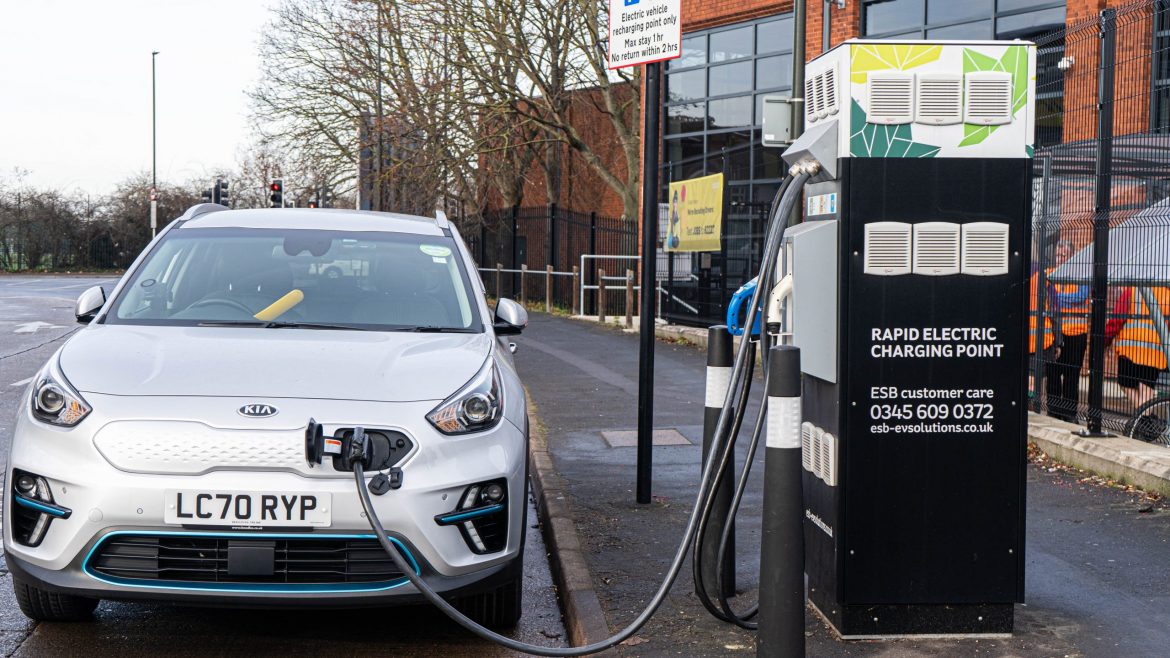The number of electric vehicle (EV) charging devices in Kingston upon Thames installed by the council has risen from 96 to 120 over the past six months, according to an FOI made to Kingston Council.
This increase comes as public electric charging points across the UK rose by 37 per cent, from 20,775 to 28,375 between 2021 and 2022.
Moreover, Kingston Council plans to install at least 250 more charging points by 2024, as part of its Ultra Low Emission Vehicle (ULEV) Policy and Action Plan. The council aims to revise this policy during 2022.
Kingston Council said: “Electric vehicles help to improve air quality as they have no tailpipe emissions of nitrogen oxides and particulates. EVs also produce less noise pollution, which contributes to streets that feel calmer and more welcoming.”
The interactive map as shown below was published by Cargiant in October 2021, revealing London boroughs “most and least prepared for the electric car revolution”.
The map showed that in October 2021 Kingston was one of the Southern boroughs with the fewest total amount of total public charging devices, with 53.6 charging devices per 100,000 population.
Sutton, the neighbouring South London borough has only 24.6 charging devices per 100,000 populations. Richmond upon Thames has a total 354 total public charging devices.
Marketing manager of Cargiant said: “Overall Kingston Upon Thames falls under the trend of East and South London boroughs of having the least number of electric car charging points. In fact, Wandsworth is the only borough in South London amongst the capital’s top 5 FIVE for total public charging devices.
“Across all the data points one thing is clear: the East and South of London comparably lack electric charging devices with Boroughs such as Kingston Upon Thames being comparably less equipped for an impeding EV revolution.”
As of October 2021, Kingston had only 96 public charging devices and eight public rapid charging devices. Only seven London boroughs had fewer than 10 public rapid charging devices, Kingston Upon Thames being part of this list.

The data also showed Westminster has the most electric car charging stations as well as the highest percentage per number of residents. This is also the highest number in the UK ahead of cities such as Leeds, Liverpool and Birmingham.
Other affluent areas such as Kensington and Chelsea, Hammersmith and Fulham and the City of London also feature highly in the list whilst Wandsworth is the only borough in the South to make it into the top five.
Since 2015, the number of public devices has grown by 9 per cent quarterly, according to government statistics.
UK electric car sales are growing, with about 10 per cent of cars sold in 2020 being electric, up from 2.5 percent in 2018, according to the figures from the Society of Motor Manufacturers and Traders (SMMT).

Transport campaigner at Friends of the Earth Jenny Bates said: “Electric cars are part of the solution to the transport sector’s runaway emissions, and will also help to cut air pollution significantly. But we shouldn’t be making a straight swap from diesel and petrol to electric vehicles. We need driving to fall by at least 20 per cent by 2030 if we’re to avert the worst of climate breakdown.
“The government, the London Mayor and councils have a responsibility to design our local areas so that climate-friendly alternatives to driving, such as walking, cycling and public transport, are the cheap and easy option. This will require commitment and investment now, but the returns for our health and the planet will be well worth it.”
Last summer, Kingston council unveiled plans to turn 100 existing lampposts into charging points for electric and plug-in hybrid vehicles across the borough.
Social media editor and reporter in Kingston, former deputy editor. Work experience at the Islington and Hackney Gazette.






